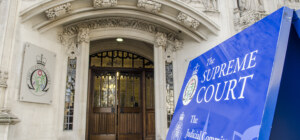Is your home address on the Companies House register?

Nicola Evans Charities Counsel
A change in the law came into force on 26 April 2018 to enable individuals to remove their home address from documents which are available for public inspection on the companies register at Companies House.
From 1 October 2009, company law changes enabled directors and company secretaries to provide a service address rather than their usual residential address on public documents. Those changes did not, though, apply to changes to historical documents where the home address had already been published. Changes to historical documents were only permitted if it could be shown that the information needed to be protected, essentially where there is evidence of a serious risk of violence or intimidation.
The new changes are introduced by regulation (the Companies (Disclosure of Address) (Amendment) Regulations 2018) and mean that individuals can apply to have references to their home address on public documents on the companies register replaced with, eg, the company’s service address without needing to provide grounds for removal.
The new change is announced on the Companies House website together with updated guidance. The guidance contains telephone and email contact details to obtain the new forms to make the application – the forms are not available online.
For those whose information needs protection, on the grounds of a serious risk of violence or intimidation, the protection regime remains in place. But if they do not meet the grounds for that test, the new change may provide an alternative for taking their home details off the public register.
In principle, the change is welcome – it has long been a known problem that directors and company secretaries can be susceptible to identity fraud because their home addresses (and dates of birth) continue to be published by Companies House. In addition, they can be open to nuisance correspondence, which might fall below the grounds for the protection regime, but would still be unwelcome and worrying.
However, whether there is a rush of applications remains to be seen. The fee applicable for the new service is £55 for each document containing an address to be suppressed. That can mount up very quickly – eg for a director appointed before 1 October 2009, their home address will be contained in the form appointing them as director and will likely be replicated in every annual return up to and including 2016 (before the change to confirmation statements). To change all those, the fee quickly runs in to hundreds of pounds.
For charitable company directors whose historical information is published on the Companies House website, the situation could present a dilemma. Say, for example, some trustees have been the victim of identity fraud believed to derive from the details published at Companies House, or that trustees have received nuisance or ‘trolling’ correspondence to their home addresses (but below the violence/intimidation threshold).
- The charity trustees are volunteers, their details are only available for public inspection because the individuals volunteered to take on the charity trustee role (in this case the role of director of the charitable company) and, at the time, were required to provide their home address for public inspection.
- But, if they now feel they would want their personal details suppressed, would that be a proper charity expense or do the charity trustees need to put their hands in their own pockets?
There may well be arguments that it is in the best interests of the charity that the fee be paid from charity funds (so that its volunteer trustees are not subjected to fraud or harassment). Any such decision would be likely to need Charity Commission authority, due to a lack of unconflicted trustees and because the payment would be a trustee benefit (requiring authorisation in the constitution or by the Charity Commission).










